Suppliers of Boortmalt have the opportunity to take part in a pilot programme which could see farmers receive a payment for storing carbon and reducing emissions on their farms. At present they’re on course to be the first company to pay farmers for carbon storage in the country.
The announcement was made last year, but last week the Irish Farmers Journal sat down with Boortmalt and Lyndon Cathers from Soil Capital to get the details of the programme as farmers now need to express interest to take part in the programme. Participants will be in place by the end of February.
Farmers who enter the programme will have to provide data for their farm for the 2024 season such as crop inputs and machinery passes to create baseline data. Soil samples will be needed and fuel use will be estimated.
Details of crop rotation in 2022 and 2023 will also be needed. The cost of creating this baseline is €600.
After harvest 2025 the same data is inputted again for that year.
There is a minimum fee of €300 from Soil Capital at this stage. This allows any improvements in carbon storage or emissions reductions to be calculated.
If carbon storage increases then Soil Capital can create a carbon certificate for that carbon which Boortmalt will purchase from the malting barley ground on the farm.
Any carbon certificates from land that is not in malting barley can also be sold by Soil Capital to gain further income, but this is not guaranteed.
If a farmer emits more carbon equivalents (carbon dioxide, methane and nitrous oxide) than stored they will not have a carbon certificate to sell.
Soil Capital run regenerative farming programmes to improve soil health in France, Belgium and the UK.
The company provides carbon certification for farmers to monetise the work they are doing to improve soil health and reduce emissions.
Beyond carbon payments
Away from carbon certificates, Boortmalt will pay farmers to implement measurements on their farm that help to reduce emissions and improve environmental sustainability and biodiversity on farms.
There is a list of eight practices which farmers can choose from, although these are not fully agreed. Farmers can pick two, three or four of these practices on their farm.
For the first two measures they will be paid €3/t on barley delivered. Three measures equate to a payment of €5/t and four measures equate to €7/t.
All farmers are expected to have cover crops on their farms so this would be the first measure. The other two or three measures can be picked from the following:
Straw chopping.Crop rotation.Increase of organic manure use.Nutrient management plan.Integrated pest management plan.Minimum-tillage.Biodiversity improvements.Farmers can receive income from selling carbon certificates. If a farmer managed to store 1t C/ha which is one certificate/ha Soil Capital has put what it says is a conservative estimate of €35-40/t on the value of this certificate.
That is a voluntary carbon price for a certificate.
Lyndon estimated that farmers could be paid €15-20/ac in carbon certificates payments.
On average in the UK last year farmers were paid £55/ha (£22/ac) in carbon certificates income.
So, if a farmer received €15/ac in carbon certificate payments and €7/t on 2.5t/ac for beyond carbon payments for implementing the measures outlined above, that equates to €32.50/ac.
On 50ac, where all barley passes for malting that’s €1,625 in total.
In the first year that farmer would be down €900 in costs, meaning income would be €725.
In year two that income would be subject to a minimum cost of €300, so total income would be €1,325.
There may also be an opportunity to sell carbon certificates on land not in malting barley, but this is not guaranteed.
Of course, carbon storage levels will change in each year.
These figures are only estimates.
Just like carbon will change so too will malting barley pass rates. The year 2024 was a good year for most supplying malting barley, but there were still high rejection rates in some areas, particularly Wexford.
In 2023 pass rates were extremely low, with 90% of barley failing at some intakes.
So, if barley doesn’t pass then the payment of €7/t of grain for implementing environmental practices will not be paid. However, the carbon certificate can still be purchased and sold so this payment will still be available.
At present, Soil Capital is using the Cool Farm Tool and a model called the DNDC from New Hampshire University to calculate each farm’s carbon emissions and storage. However, these tools are not based on Irish data.
No Irish carbon measurement tool is currently available. Soil Capital has said that it will see what research comes from Teagasc’s carbon footprint work and see how it can use this in its measurements.
At present, one issue with the model pointed out at a recent farmer meeting with Boortmalt is the reward to farmers min-tilling and the penalty for ploughing.
Minimum-tillage may help with soil health, but Teagasc research shows little or no difference in carbon emissions between ploughing and min-till in Ireland. So this model is not in keeping with long-running Irish research. It is a global model.
Carbon certificates versus credits
Many readers will have heard of carbon credits. This is a 1t credit which for example an airline company will purchase in order to be able to emit 1t of carbon. This is called offsetting. Carbon credits are worth about €75/t at present, significantly more than a carbon certificate, but they require more soil samples and measurements.
A carbon certificate is traded for less. It allows companies to carry out in-setting, where the carbon stays in the supply chain. Boortmalt has three sets of emissions – scope 1, 2 and 3. Scope 3 includes malting barley emissions. A carbon certificate can be used to reduce scope 3 emissions and has less measurement requirements.
Before any farmers are officially signed up to the programme they will complete an eligibility test. This will estimate how much they could make from the programme and allow the farmer to determine if it is worth their while taking part in the programme. There are costs involved which can be seen below:
Entry fee - €600.Yearly charge - €300 minimum or €1.30/ac to a maximum of €900.Last year, the Irish Farmers Journalreported on ADM’s Re:generations programme where farmers are being paid for similar actions to this programme like cover cropping and reduced tillage. However, there is no charge for data collection in that programme so the payments are all for the farmer with no expenses.
Boortmalt has said farmers are better participants when they invest, but the low level of data input and the payments look to be enough to motivate farmers to enter five million acres into ADM’s programme.
Diageo are also running a pilot regenerative agriculture programme with no charge to the farmer. The Irish Farmers Journal understands farmers have been paid for data sharing in this programme.
A number of co-ops pay sustainability bonuses on milk for having multispecies swards and planting hedgerows for example. There is no charge to the farmer. In some cases protected urea needs to be purchased from the co-op for that to be counted.
Suppliers of Boortmalt have the opportunity to take part in a pilot programme which could see farmers receive a payment for storing carbon and reducing emissions on their farms. At present they’re on course to be the first company to pay farmers for carbon storage in the country.
The announcement was made last year, but last week the Irish Farmers Journal sat down with Boortmalt and Lyndon Cathers from Soil Capital to get the details of the programme as farmers now need to express interest to take part in the programme. Participants will be in place by the end of February.
Farmers who enter the programme will have to provide data for their farm for the 2024 season such as crop inputs and machinery passes to create baseline data. Soil samples will be needed and fuel use will be estimated.
Details of crop rotation in 2022 and 2023 will also be needed. The cost of creating this baseline is €600.
After harvest 2025 the same data is inputted again for that year.
There is a minimum fee of €300 from Soil Capital at this stage. This allows any improvements in carbon storage or emissions reductions to be calculated.
If carbon storage increases then Soil Capital can create a carbon certificate for that carbon which Boortmalt will purchase from the malting barley ground on the farm.
Any carbon certificates from land that is not in malting barley can also be sold by Soil Capital to gain further income, but this is not guaranteed.
If a farmer emits more carbon equivalents (carbon dioxide, methane and nitrous oxide) than stored they will not have a carbon certificate to sell.
Soil Capital run regenerative farming programmes to improve soil health in France, Belgium and the UK.
The company provides carbon certification for farmers to monetise the work they are doing to improve soil health and reduce emissions.
Beyond carbon payments
Away from carbon certificates, Boortmalt will pay farmers to implement measurements on their farm that help to reduce emissions and improve environmental sustainability and biodiversity on farms.
There is a list of eight practices which farmers can choose from, although these are not fully agreed. Farmers can pick two, three or four of these practices on their farm.
For the first two measures they will be paid €3/t on barley delivered. Three measures equate to a payment of €5/t and four measures equate to €7/t.
All farmers are expected to have cover crops on their farms so this would be the first measure. The other two or three measures can be picked from the following:
Straw chopping.Crop rotation.Increase of organic manure use.Nutrient management plan.Integrated pest management plan.Minimum-tillage.Biodiversity improvements.Farmers can receive income from selling carbon certificates. If a farmer managed to store 1t C/ha which is one certificate/ha Soil Capital has put what it says is a conservative estimate of €35-40/t on the value of this certificate.
That is a voluntary carbon price for a certificate.
Lyndon estimated that farmers could be paid €15-20/ac in carbon certificates payments.
On average in the UK last year farmers were paid £55/ha (£22/ac) in carbon certificates income.
So, if a farmer received €15/ac in carbon certificate payments and €7/t on 2.5t/ac for beyond carbon payments for implementing the measures outlined above, that equates to €32.50/ac.
On 50ac, where all barley passes for malting that’s €1,625 in total.
In the first year that farmer would be down €900 in costs, meaning income would be €725.
In year two that income would be subject to a minimum cost of €300, so total income would be €1,325.
There may also be an opportunity to sell carbon certificates on land not in malting barley, but this is not guaranteed.
Of course, carbon storage levels will change in each year.
These figures are only estimates.
Just like carbon will change so too will malting barley pass rates. The year 2024 was a good year for most supplying malting barley, but there were still high rejection rates in some areas, particularly Wexford.
In 2023 pass rates were extremely low, with 90% of barley failing at some intakes.
So, if barley doesn’t pass then the payment of €7/t of grain for implementing environmental practices will not be paid. However, the carbon certificate can still be purchased and sold so this payment will still be available.
At present, Soil Capital is using the Cool Farm Tool and a model called the DNDC from New Hampshire University to calculate each farm’s carbon emissions and storage. However, these tools are not based on Irish data.
No Irish carbon measurement tool is currently available. Soil Capital has said that it will see what research comes from Teagasc’s carbon footprint work and see how it can use this in its measurements.
At present, one issue with the model pointed out at a recent farmer meeting with Boortmalt is the reward to farmers min-tilling and the penalty for ploughing.
Minimum-tillage may help with soil health, but Teagasc research shows little or no difference in carbon emissions between ploughing and min-till in Ireland. So this model is not in keeping with long-running Irish research. It is a global model.
Carbon certificates versus credits
Many readers will have heard of carbon credits. This is a 1t credit which for example an airline company will purchase in order to be able to emit 1t of carbon. This is called offsetting. Carbon credits are worth about €75/t at present, significantly more than a carbon certificate, but they require more soil samples and measurements.
A carbon certificate is traded for less. It allows companies to carry out in-setting, where the carbon stays in the supply chain. Boortmalt has three sets of emissions – scope 1, 2 and 3. Scope 3 includes malting barley emissions. A carbon certificate can be used to reduce scope 3 emissions and has less measurement requirements.
Before any farmers are officially signed up to the programme they will complete an eligibility test. This will estimate how much they could make from the programme and allow the farmer to determine if it is worth their while taking part in the programme. There are costs involved which can be seen below:
Entry fee - €600.Yearly charge - €300 minimum or €1.30/ac to a maximum of €900.Last year, the Irish Farmers Journalreported on ADM’s Re:generations programme where farmers are being paid for similar actions to this programme like cover cropping and reduced tillage. However, there is no charge for data collection in that programme so the payments are all for the farmer with no expenses.
Boortmalt has said farmers are better participants when they invest, but the low level of data input and the payments look to be enough to motivate farmers to enter five million acres into ADM’s programme.
Diageo are also running a pilot regenerative agriculture programme with no charge to the farmer. The Irish Farmers Journal understands farmers have been paid for data sharing in this programme.
A number of co-ops pay sustainability bonuses on milk for having multispecies swards and planting hedgerows for example. There is no charge to the farmer. In some cases protected urea needs to be purchased from the co-op for that to be counted.




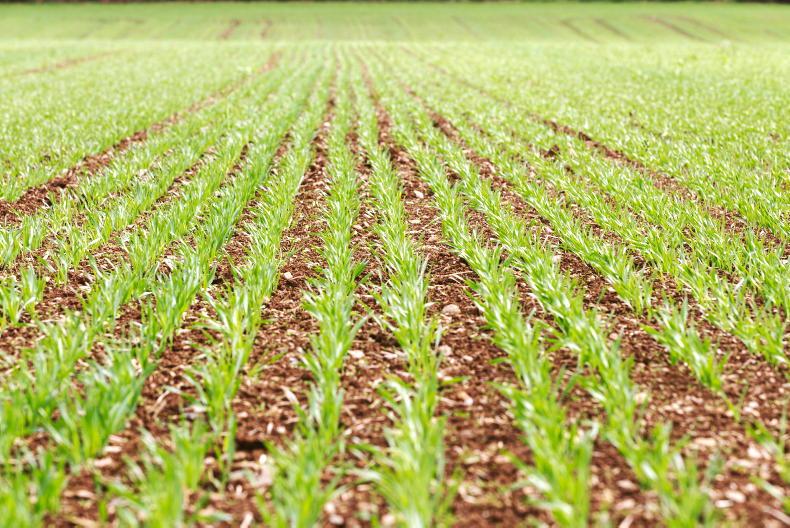
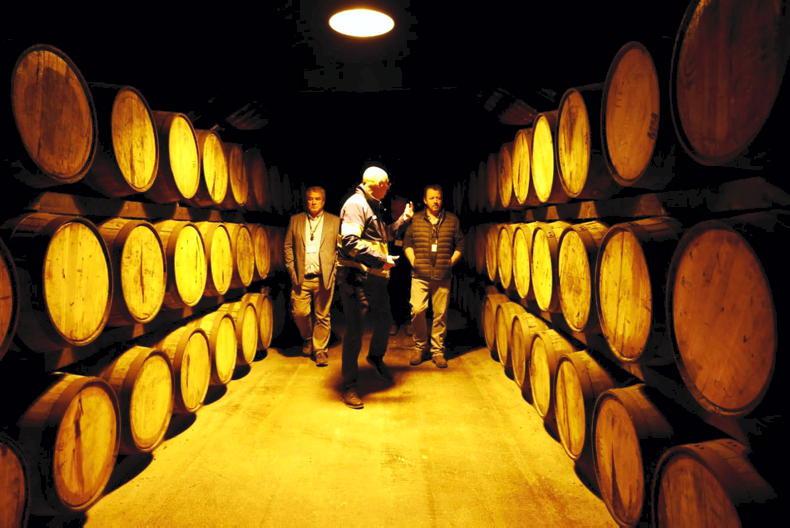
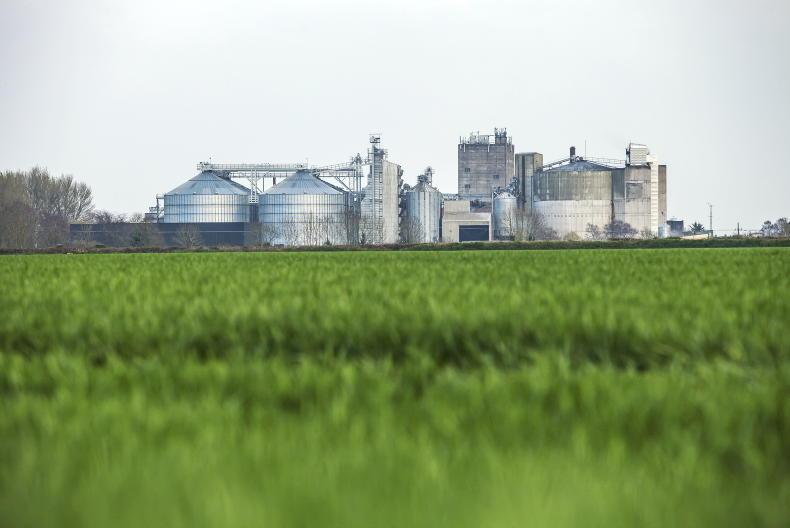
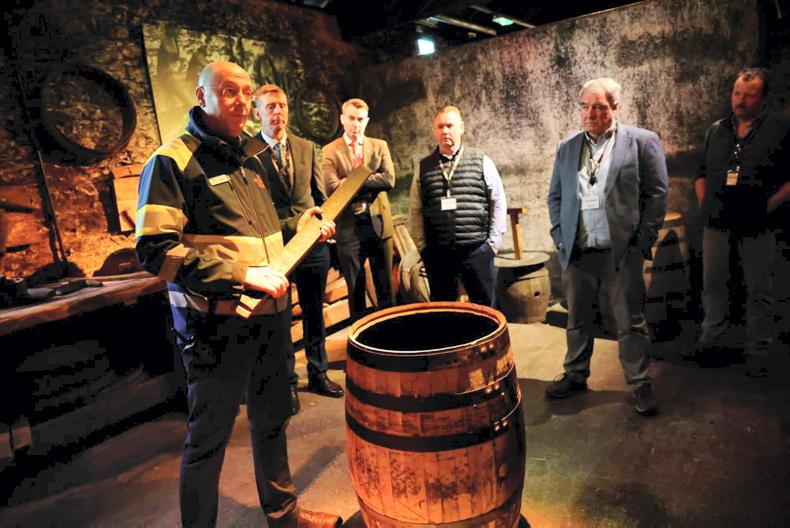
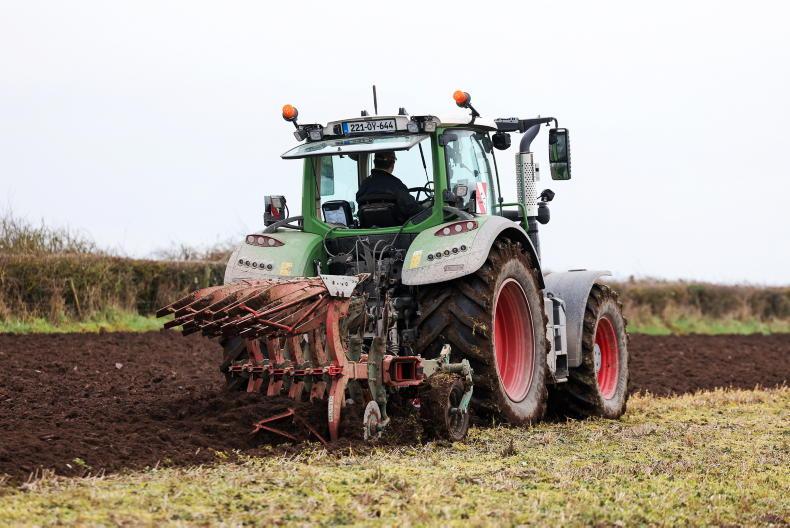
SHARING OPTIONS